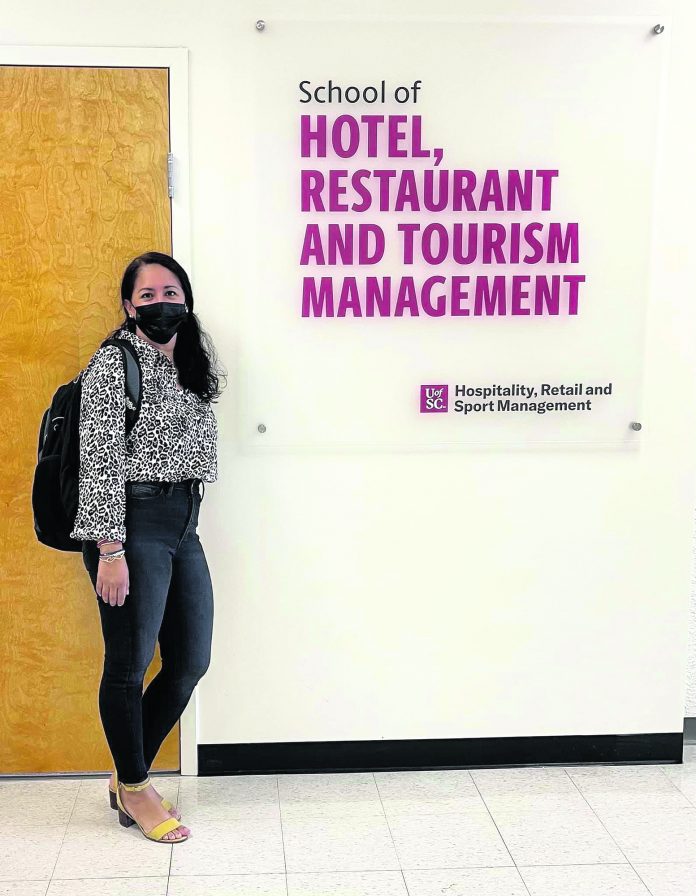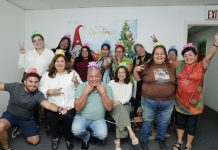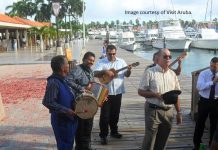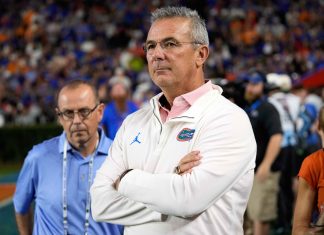For a long time she was a tourism executive in Aruba, but Sue Ann Lee already has six years giving lectures at the Faculty of Hospitality and Tourism Management Studies at the University of Aruba. And now, she’s the faculty’s dean.
Lee, mom of four, decided to take the next challenge in her professional career and she’s ready for it. “After working so long in the industry, I applied to work in FHTMS as a lecturer, but on a part-time basis. But as fate would have it, a full-time position became available and I was chosen for it.” According to Lee, after working many years in tourism she was interested in sharing not only her own advanced education, but also her knowledge, with the faculty’s students. “I wanted to transfer this into education. And at that moment I never thought of becoming a dean.”
The experience of working as a tourism executive to then stand in front of a group of young people, mostly people who finished EPI Horeca (advanced studies in hospitality and tourism) or Colegio Arubano (advanced secondary education) was something completely different. “It’s a beautiful experience, because here it has to do with a different generation. I can show examples from Aruba itself. For tourism, you don’t need to go far away from home, don’t have to go to Disney to understand the problems, the examples that can be used to bring forward the situations described in the books. The experience helps a lot to explain the literature.” Lee can use the realities in Aruba to illustrate the subject. “The experience on the field is very valuable, and I use it so that the students can reflect closer to home. They are very critical and we provide them with the opportunity to start thinking more critically about different parts of our tourism and connecting them back to the literature that they must master.”
“I can recognize myself in the students. I finished Colegio and went to study in the Netherlands, but at the same time we can see them grow and develop.” FHTMS awards the degree of Bachelor of Science, a three-year study, and it sees the students grow and develop their abilities. “It’s very impressive.” The new dean illustrates how fascinating it is to see young students start the first year with a lot of reservations, with fear of speaking up, and fear of doing presentations. “And then I can tell them that I also went through a similar experience, and now I stand in front of the class. You develop your abilities, and we want for them to develop theirs, among others, communication but also social abilities. That’s the great part.”
Sue Ann Lee, with her six years at the University of Aruba saw two groups of students graduate, and it’s those moments that fill her with happiness. “It’s so impressive to see how a student started to finish their study with the presentation of their thesis, how they grew, and how they present the area that they discovered they like for doing research.”
The position of dean is not a fixed position. A dean is the person guiding the faculty, but normally the person is chosen through an election where the staff and student representatives from each year participate. “So we have freshmen, juniors and seniors, and every month there is a faculty-wide meeting. John Wardlaw was in charge of the faculty for almost 12 years and he informed he didn’t want to continue. But John for some time already had been saying he didn’t want to continue, and even so, we kept voting for him.” However, this year Wardlaw left it very clear that he didn’t even wanted to be nominated, much less voted for. He wanted someone else to take his place. “This was like the third time he was saying this. So in my mind, the day was coming and my colleagues were not reacting. And when he said that, I decided to nominate myself, but giving my colleagues also the space to say if they wanted the position. But no one else applied, so I was the only nominee,” Sue Ann said with a laugh.
Even so, she had to go through the voting process. “It’s a two-year position, so in two years I must go through another voting process if another colleague wants the position.” The voting took place during a faculty meeting where all staff is present, in order to go over study programs, and how the lectures are going. Students also have the opportunity to give their contribution in what they consider important for the lectures, from the lecturers, and the operation of the University. Everyone can bring forward their points and the dean is in charge of guiding the process.
The work becomes then one more administrative, Lee explains. She manages a program, meets with management, and deals with everything the students confront. “I will continue giving lectures, but fewer hours. I used to give three classes per semester, but now it will be one.”
The way in which Lee will manage will be different than Wardlaw, in the sense that she wants everyone to carry more responsibility. “I will continue lecturing, so I can’t carry everything.” In other words, her management style is to delegate.
Her partner knew that Lee was interested in the position of dean, which has a lot more responsibility, for example of marketing, procedures, and more work hours. “As a lecturer I gave my lectures in the morning and had more flexibility by noon and night. But now there are other activities as part of the job, like events at the University of Aruba. The hours change, I told my children, ‘you will see mommy less’” Lee said. “And they knew the baby was coming.”
The decision to become dean was before the baby, but for Lee, it’s just another challenge to organize, to manage FHTMS beside her responsibilities as a mom of four. There’s no reason to doubt that she will succeed.
















